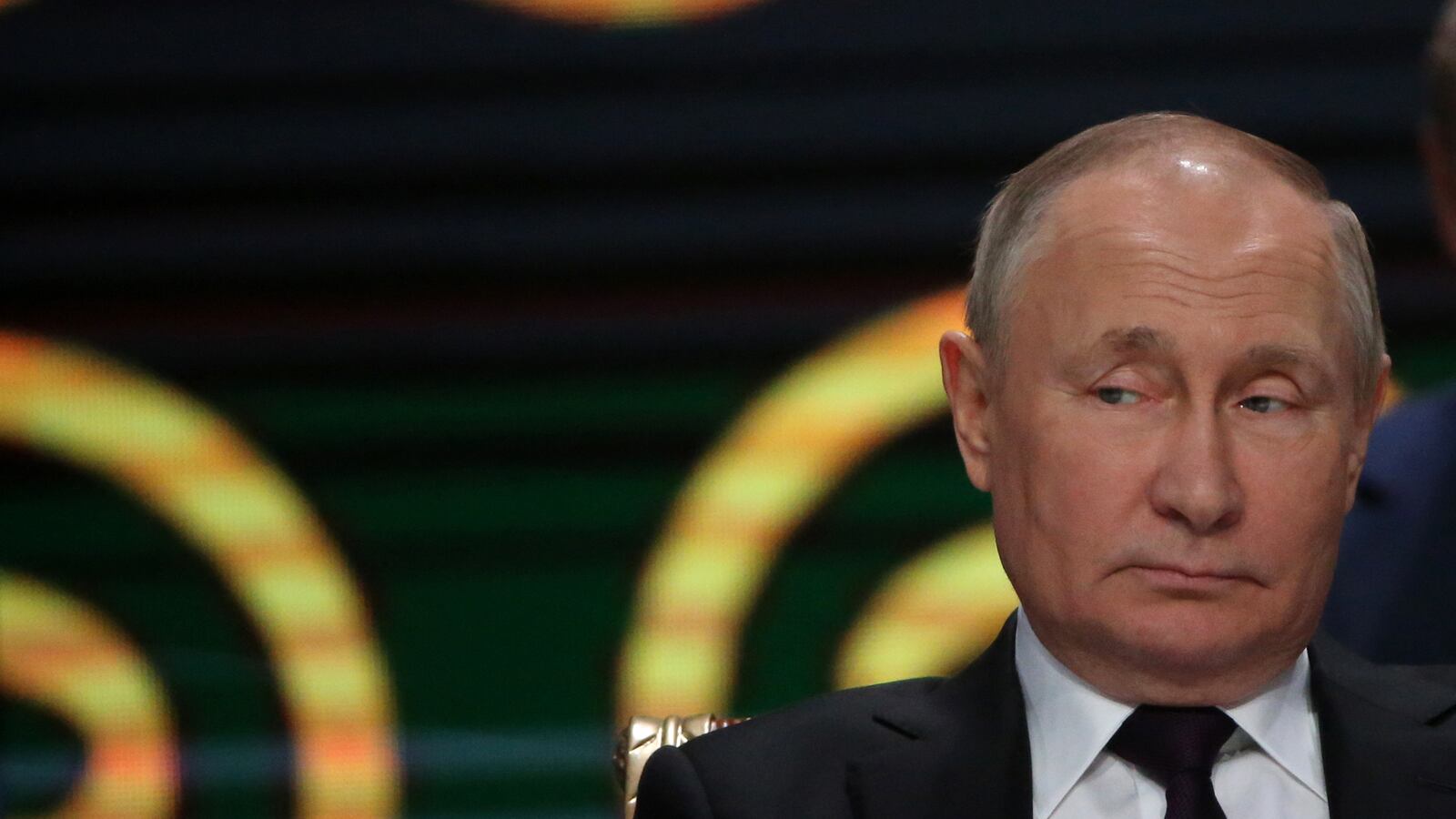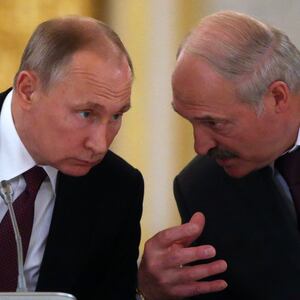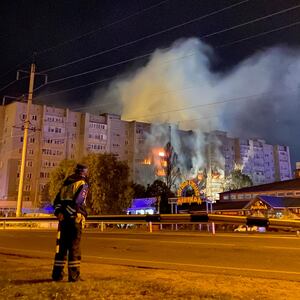Russia’s Vladimir Putin pulled a new trick out of his bag Wednesday as he tried, for the umpteenth time, to turn the tide of his war against Ukraine while it drags into its eighth month with lots of lost lives and little else to show for it.
But just as with his “partial mobilization” order that sparked fury and street fights last month, the Russian president’s latest Hail Mary—the declaration of “martial law” in Ukrainian territories Moscow doesn’t even have full control of and sweeping new security measures for one-third of Russia—only seems to drag his own citizens deeper into the war and change little on the battlefield.
The decree signed by Putin after he gathered his minions to make the solemn announcement of martial law—seven months after reassuring his own citizens that things would never go that far—effectively imposes war-time restrictions on the Donetsk, Kherson, Luhansk, and Zaporizhzhia regions in Ukraine which Moscow claims to control.
The decree, which takes full effect Thursday, also grants “additional authority” to the puppet leaders Russia appointed to head those regions, and allows for unspecified “other measures,” including “limitations on rights and freedoms” and “general or partial mobilization.” Six Russian regions on the border with Ukraine will also switch to a heightened-security regime that allows local authorities to restrict movement in and out of the area or move residents out if they deem it necessary.
Putin also announced the creation of a special council designed to “meet any needs” of the Russian military as the war drags on. The council, to comprised members of the security services, lawmakers, and members of the presidential administration, will be headed by Prime Minister Mikhail Mishustin.
The move was quickly applauded by pro-Kremlin pundits and some of Putin’s most hard-line sycophants, like Chechen leader Ramzan Kadyrov, who gushed on Telegram that the president’s decree means newly occupied territories are now officially protected by Russia and Ukrainian cities will be wiped “off the face of the earth” if “even one bullet flies towards Russia.”
But human rights groups and legal experts noted that orders signed by Putin on Wednesday also leave the door open for authorities to confiscate ordinary people’s belongings to fulfill “the needs of the army,” enlist citizens to perform tasks “for defense purposes,” wiretap citizens’ phones, restrict entry and exit, and even detain or jail any people who hold citizenship of another country seen as an “enemy” to Russia.
The “martial law” order also comes amid plunging morale for Russia’s military as the full fallout of Putin’s mobilization order becomes clearer each day, with more and more fed-up family members of drafted troops blasting defense officials for sending men with no training or equipment to die on the battlefield.
Putin’s new decree was seen by some as a desperate way to widen the net in search of fresh meat.
“Not even mobilization and energy terror allowed the bunker terrorist to hold on to stolen territories, stop the offensive of the Armed Forces of Ukraine, or deprive Ukraine of support from the entire civilized world,” Anton Herashchenko, an aide to Ukraine’s interior minister, wrote Wednesday.
He said the decree will now “make it possible to forcibly conscript male citizens of Ukraine and send them to the trenches to die, as was previously done with the residents of Donetsk and Luhansk.”
The Kremlin, apparently keenly aware of the blowback over the mobilization, was quick to make assurances Wednesday that Russian borders would not be shut down in light of the “martial law” order. Moscow Mayor Sergei Sobyanin, likewise, promised Russians in the capital that the “normal rhythm of life” in the city would not be disrupted.
A day earlier, Kremlin sources interviewed by Meduza said Putin and his top defense officials were still feeling the sting of public anger over the bungled mobilization, which was declared over in Moscow after authorities realized residents had become “frustrated.”
But the damage is still done. And the presidential administration reportedly set up focus groups in major cities to determine just how much—only to find what one source quoted by Meduza called an “anti-Putin trend” even among ordinary citizens who generally support the so-called “special military operation” against Ukraine.
“Even if the person is for [the war], they nonetheless say it was all organized badly and the president is to blame–he let down all the officials and the soldiers,” the source said.
If Putin was hoping to bounce back with his latest maneuver, it would seem he had poor timing. Even as the Russian leader sat down to declare unchecked security powers over Ukrainian territories, Russian-backed officials put in charge of some of those territories were openly fleeing an expected Ukrainian counter-offensive.
Vladimir Saldo, the Kremlin-appointed leader of Kherson, said Wednesday that local Russian-backed authorities were evacuating their offices in anticipation of Ukrainian troops breaking through, and his deputy, Kirill Stremousov, urged people to “evacuate as fast as you possibly can.”
Ukrainian officials, meanwhile, laughed off what they described as overacting by the Kremlin.
“The Russians are trying to scare the people of Kherson with fake newsletters about the shelling of the city by our army, and also arrange a propaganda show with evacuation,” Andriy Yermak, the head of the Ukrainian president’s office, wrote on Telegram.







